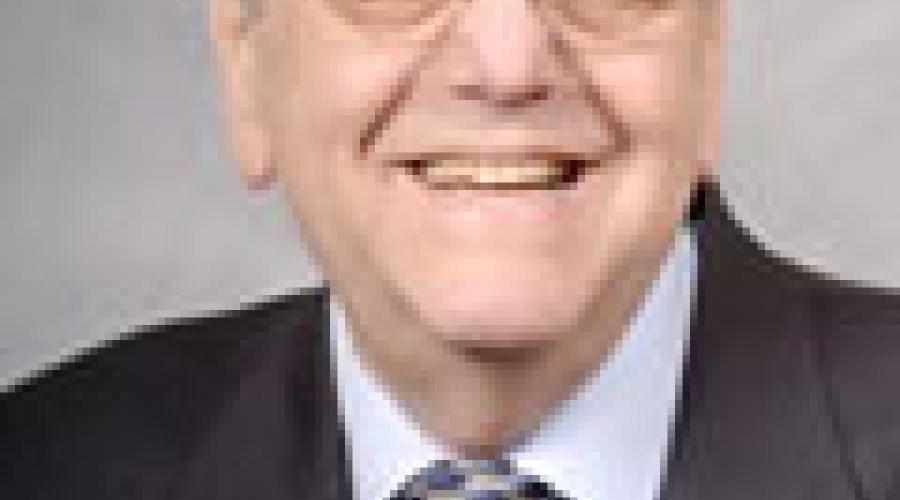
Working it Out
How does he do it?
How does Alan Lubin turn a room full of people into mush?
"I like people," he shrugged. "I love speaking to groups. I'm a ham. I guess most teachers are."
Chief lobbyist and executive vice president of one of New York state's most influential unions, Lubin met with students this month through a new ILR course, "Public Policy and Public Sector Employment Relations."
Rhythmically, Lubin went one question to the next.
Teacher fingerprinting. Property tax relief. The legitimacy of teachers wearing political pins in the classroom. Governor David Paterson's education proposals. Tenure.
These are some of the issues Lubin talks about almost every day as a leader of the New York State United Teachers.
"NYSUT," as the group is known by many, includes 600,000-plus people working or retired from schools, colleges and health care facilities in New York state. Members include classroom teachers, college and university faculty and professional staff, school bus drivers, custodians, secretaries, cafeteria workers, teacher assistants and aides, nurses and health care technicians.
NYSUT's voice is often this soft-spoken, disarmingly kind Brooklyn native who taught fourth grade for 20 years.
"He's conversational, not confrontational," said Kelly Long '09, a Cornell Institute for Public Affairs fellow enrolled in the public policy course taught by ILR professors Lee Adler and Sally Klingel.
And, Lubin is convincing, said Paula Reichel '09, also a Cornell Institute for Public Affairs fellow. "In a second, he almost dissuaded me" on an issue, she said as Lubin wrapped up a 75-minute session with her class.
Lubin, who oversees legislative and political action programs for the teachers' union, delayed his drive home to Clifton Park near Albany for an encore conversation with students in Professor Rick Hurd's class, "The Contemporary Trade Union Movement."
He didn't tell them he made $75 a week when he started teaching in 1967.
Or, that his father is his hero.
Irving Lubin worked two full-time jobs for many years to support his wife and three sons. A junior high school math teacher from 8 to 3 and a postal worker from 4 to midnight five days a week, Lubin was active in unions for both. When his son began teaching, they attended union rallies together.
Alan Lubin spoke to ILR students about the value of finding middle ground.
"When you win," he said, "you make an enemy."
"Compromise," he said, "is the way of new unionism."
Students in the public policy course taught by Adler and Klingel are hearing from a number of players in the midst of New York state conflicts. Speakers this semester include Lt. Ed Boles of the New York City Uniformed Fire Officers Association, Rich Mulvaney of the New York State Troopers Association, Ross Piscitelli, employee relations director for the New York State Troopers, and ILR and Cornell Law School graduate Norma Meacham, an attorney representing school districts.
Also speaking this semester are Tompkins County Legislator Kathy Luz Herrera, Empire Center for New York State Policy Director Edmund J. McMahon, the ILR School's 2008 Neutral-in-Residence Tia Denenberg, New York State School Board Association Executive Director Tim Kremer and arbitrator/mediator Marty Scheinman, an ILR alum for whom ILR's Scheinman Institute on Conflict Resolution is named.
In the meantime, Lubin is trying to convince politicos and others in the throes of state funding decisions that "you cannot educate on the cheap."
Governor Paterson will receive continued coaxing, Lubin said.
"I tell him, he has to not lose his base – the working and poor people of New York."
"You'll see," Lubin said. "We'll work it out."


